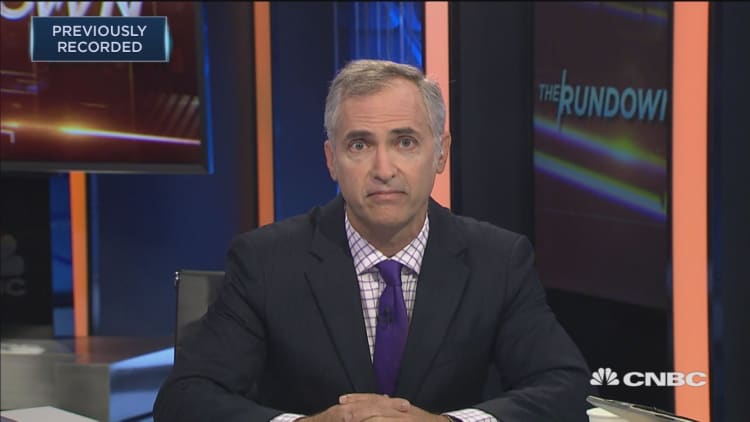
One of the defining actions of President Donald Trump's tenure in the White House so far is his decision to withdraw the U.S. from a 12-nation trade pact that would have had wide-ranging implications for the global economy.
Now that deal — the Trans-Pacific Partnership — looks like it's going to be settled without the U.S.. That may mean American farmers and small business owners will soon regret Washington's exit.
"The U.S. business community that's going to get hit the hardest when TPP happens is going to be agriculture and small and medium-sized enterprises," said Steve Okun, senior advisor at international trade consultancy McLarty Associates and a former deputy general counsel at the U.S. transportation department.
Progress on the agreement, now known as the Comprehensive and Progressive Agreement for Trans-Pacific Partnership, hit a milestone over the weekend as the 11 remaining members agreed on core elements for a new framework without the U.S.
Once the new deal is implemented, American farmers could be left at a disadvantage: The agreement seeks lower tariffs for goods traded among members, the bulk of which are Asia-Pacific nations. That means non-member countries, such as the U.S., will still face high rates when shipping to Asia-Pacific.
"It's going to really benefit farmers and agricultural producers here in Asia-Pacific and not the U.S.," Okun told CNBC.
American small businesses will also feel the pain, Okun explained.
Many U.S. small and medium-sized enterprises depend on the exports of goods and services to Asia. They will likely become less competitive as a result of exclusion from the new TPP, which seeks to facilitate easier access to regional supply chains for SMEs.
The picture is a little brighter for larger U.S. companies already in the region, Okun noted: "They may be able to fit into TPP-11 like Japanese companies can fit into NAFTA."
The new TPP deal, which still needs to be finalized, could suspend around 20 provisions from the original agreement, Reuters reported. Many of those are related to intellectual property, one of the pact's more controversial areas.
The U.S. president doesn't think TPP is good for America "but many of us don't agree with that,"
Malaysian trade minister Mustapa Mohamed told CNBC on the sidelines of the Asia-Pacific Economic summit.
"The fact that TPP 11 has come together indicates that there is a place for multilateralism," he continued. "We hope that corporate America, in particular, will continue to use their influence to persuade their administration to come on-board."

